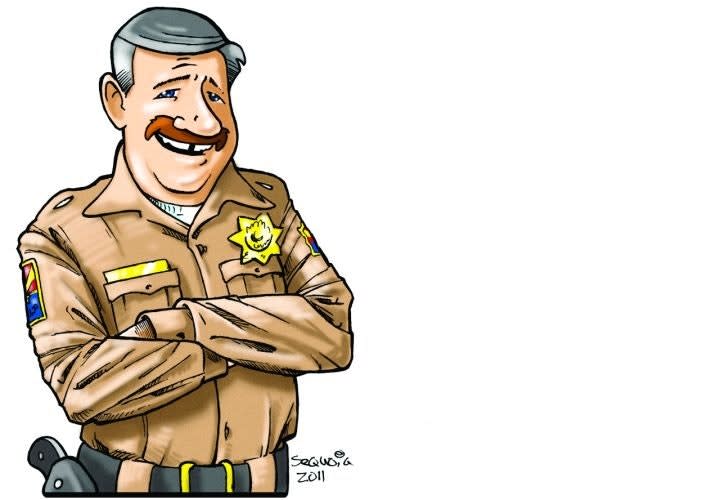I have always been a voracious reader and one of my favorite genres is detective novels. From the Hardy Boys to Joseph Wambaugh's cast of characters I have always enjoyed the various authors' takes on investigations, crime, and irony. From red herrings to actual clues, our heroes must traverse all the issues that those who seek justice must endure.
As a young cop I began to seek out the more realistic and often less romantic versions of the detective narrative. While the Hardy Boys were wholesome and nice, Wambaugh's "Choirboys" were often dark and drunk. I often wonder how this influenced the young crimefighters of the 1970s and how many careers were rocked by imitating the characters' behaviors and attitudes.
Ever since LAPD Sergeant Wambaugh's literary success, the heroes of detective novels have often faced angst, fear, loss, and alcohol and drug abuse, which makes us care about them more intensely for their humanity than their prowess as investigators. A happily married detective with a loving family, dog, healthy lifestyle, good hobbies, and friends is about as rare as it gets in today's literature. That character is typically not very interesting and is usually killed in the first chapter.
Don't get me wrong. I am no Pollyanna seeking Nancy Drew and Hardy Boys characters. I just think it's interesting how powerful a novel can be in creating not only the public's but the profession's own image of itself. Wambaugh also touched the third rail of law enforcement by discussing "eating your gun." Maybe we should thank him for breaking the taboo of talking about officer suicide and dragging it into daylight. Sadly, we still seem to be behind the curve in dealing with this tragedy. "Choir Practice" (a shift of cops gathering to drink heavily after work) in the novel was probably a lame attempt at self-medication and group therapy, but many crimefighters have called a "choir practice" after a traumatic event.
Wambaugh, of course, didn't actually invent "hero's pathos;" it actually appears quite effectively in the grandfather of all literary detectives, Sherlock Holmes. While detectives appeared in earlier literature by Edgar Allen Poe and Mary Elizabeth Braddon, none has seized the public's imagination or sustained commercial success like Arthur Conan Doyle's cocaine-addicted protagonist.
I didn't read Sherlock's stories until I was living on the Navajo Reservation, working as a highway patrol officer. We didn't have television, or more than one radio station, so reading was the primary entertainment available. I caught up on lots of volumes, including the entire Conan Doyle bibliography.
If you have never read any of Holmes' adventures you will be surprised by the nature of forensic science Dr. Doyle introduced in these late 19th century novels. While the remarkable mind of Holmes actually "induced" rather than "deduced," I found the books not only entertained me; they helped structure my investigative skills. Observation is truly an essential element in law enforcement and Holmes' broad knowledge base allowed him to make leaps of logic to correct conclusions. For example, upon meeting the good Doctor Watson, who would become Holmes' stabilizing and documenting sidekick, and seeing Watson limping in spite of an obviously fit body, Holmes observes, "You've been to Afghanistan I perceive!" Indeed, Holmes was correct that Dr. Watson had just returned from the British war in Afghanistan where he had been awarded a "medal of honour."
Holmes' adventures created a public demand for crime fiction that continues to this day and, thanks to an abundance of writers—including many current and retired crimefighters—a profusion of novels, shorts stories, and docudramas provide us with a vast array of entertaining and educating stories. Former Dallas SWAT Commander Richard Abshire makes sure his all too human hero uses proper forensic knowledge to gain the edge on the bad guys, and Preston and Child's Aloysius Xingu Leng Pendergast uses his encyclopedic knowledge base to deduce the bad acts and bad actors in 19 books written to date.
Actually, what I am really saying is that I recommend you sit back with a good book or audiobook, learn something new, and enjoy some good fiction. In a time of great social stress and change, sometimes it's healthy to relax and escape into the imagination of a good author.
Dave Smith is an internationally recognized law enforcement trainer and is the creator of "JD Buck Savage." You can follow Buck on Twitter at @thebucksavage.












